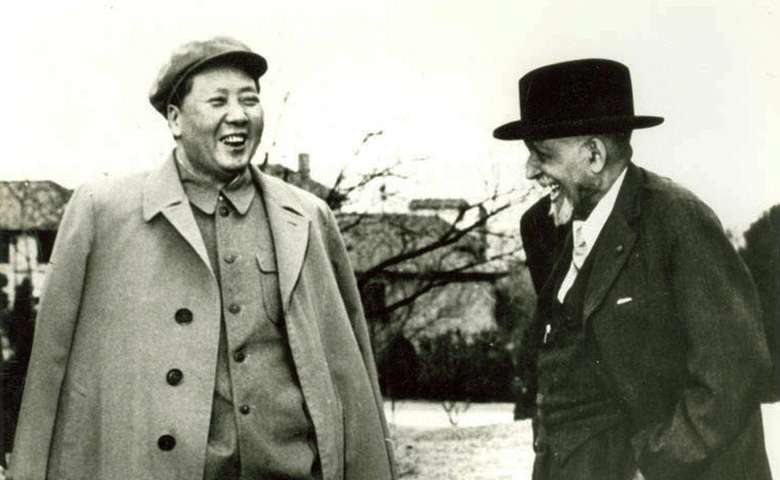Uncovering fateful ties between US, China

U. S. civil rights activist W.E.B. Dubois, right, meets Chinese leader Mao Zedong in 1959.
Most scholars of China-US relations focus on diplomacy and politics, but Stanford historian Gordon H. Chang is committed to exploring the cultural, intellectual and ideological aspects of US perspectives on China.
In his book, Fateful Ties: A History of America's Preoccupation with China, recently published by Harvard University Press, Chang illuminates China's pivotal role in shaping America's identity and fate within the context of shifting bilateral relations in the past three centuries.
"When Americans thought about the future and destiny of their country they often looked toward the Pacific and the Far East, and China in particular," Chang said.
Using the transcontinental railroad as an example, Chang pointed out that its construction was driven by a desire to connect with China. In the minds of its 19th century planners, the railroad would connect together the lucrative Chinese market and the East Coast, the gravitational center of US politics.
Moreover, Chinese people and experiences impressed a number of cultural and intellectual figures. In the 1930s, Ernest Hemingway lauded the industriousness of Chinese workers. In the 1960s, literary spokesmen of African American liberation movement such as W.E.B. Dubois and Huey Newton were inspired by the Chinese Revolution.
"These authors' views were not theirs alone but represented many other Americans. Thus, their opinions are important in understanding American public opinion. Moreover, they were also very influential, and their writings affected the views of others," Chang said.
It is because of the enduring, special bond between the two countries that the suspension of diplomatic relations between the US and China in 1949 seemed particularly unsettling. The impasse lasted for more than two decades until the early 1970s, when a series of American visits to China normalized diplomatic relations and reignited the public's fascination with Chinese civilization.
With the 2016 presidential elections coming up, Chang said he hopes that his book "can make people a little more prudent—a little more introspective and thoughtful about the long-term relationship the two countries have enjoyed and will continue to build. "
Wang Xiaozhen is a reporter at the Chinese Social Sciences Today.
